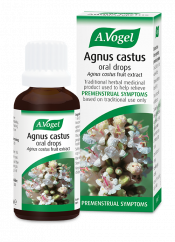An introduction to period types
Is your period normal? It’s not something we tend to discuss in detail over dinner. However, most women have to deal with periods from their teenage years, right through until their 50’s on average.
That’s sometimes 40 years’ worth of periods. Therefore it makes sense to understand your period and know what’s normal. And if it isn’t normal, you can most likely do something about it.
Here, I outline the different types of periods, what to look out for and different dietary elements, lifestyle factors and herbal remedies you can introduce to help manage them.
What is ‘normal’?
The typical period makes an appearance every 28 days (on average) and should last for approximately 2-6 days. Often periods have a longer cycle early on in life and tend to regulate nearer to the 28 days as you get older, although hormonal contraceptives and other factors can throw this off at any time.
Your period may be accompanied my some symptoms such as stomach cramps for the couple of days around the start of the bleed and perhaps some other changes such as a changes in mood, sore breasts, headaches or skin issues. Symptoms shouldn’t be too severe though and they shouldn’t affect your day to day living. If you feel they do, click the following link to learn more about Premenstrual syndrome (PMS).
Despite it often feeling like more (!), on average a woman only loses 30-40ml of blood during each period. That’s only between 1 - 3 tablespoons worth!
However, within the ‘normal’ spectrum of periods there can be a variety of different colours, texture and types of periods.
Colours
Don’t be alarmed by different colours of blood appearing during your period, in many cases this is quite normal:
- Bright red blood – Bright red blood is the regular blood that you will lose for the majority of your period. It means that this blood has been recently shed from the lining of your womb
- Dark brown blood – don’t worry this is still blood! You will often see dark, brown looking blood nearer the end of your period. This is just older blood. Sometimes if your period is very light, or first thing in the morning, the blood may have been stored in your uterus for longer before being shed
- Clear – your period may be red but flecked with a clear liquid, this is just vaginal discharge which is perfectly normal
- Orange, yellow or green – this might suggest fluids have leaked from elsewhere in the uterus rather than just the regular lining or you have some sort of infection. It might be worth visiting your doctor if this persists
- Pink or grey – this could be a sign that you are passing some sort of tissue or having a miscarriage, again a visit to your doctor is advised if this is the case.
Textures
Different textures may also appear which is often nothing to worry about:
- Thin – Thin blood is expected and this type usually appears with light to moderately heavy periods
- Lumpy – Lumpy periods are often nothing to worry about as it a common feature in slightly heavier periods. The lining of your womb which is breaking down to give you your period is quite thick, and normally as you bleed, your body releases anti-coagulant chemicals to thin this material and prevent blood clots. However, in very heavy periods your body struggles to keep up and you can end up passing these clots of blood. However, if the lumps are other colours other than red (such as pink or grey), have a solid consistency or the clumps are very frequent and associated with pain or other symptoms, be sure to pay a visit to your doctor as it could be a sign of something else such as fibroids or a miscarriage
- Slimy – Slippery or slimy blood usually suggest your period is simply mixed with some regular vaginal secretions and is also normal. Again, if this is accompanied by other colours other than red it might be worth getting checked.
Different types of periods
As well as often appearing different in colour or consistency, generally periods can be split into different types as follows:
- Heavy – Heavy periods, also called menorrhagia, is usually when a woman loses more than 60ml of blood in each period (over 3 tablespoons). Heavy periods can be normal for some women but they can be inconvenient and there may be an underlying cause – this may help you better manage your symptoms. Click the above link to visit our heavy periods page and learn more
- Painful – Periods are often accompanied by some degree of period pains, often referred to as ‘period cramps’. However, the degree of pain experienced can vary greatly between different women. Click on the link above to discover why your periods are so painful and what steps you can take to manage the pain
- Irregular – Although on average women have a period every 28 days, this can vary and many women have a shorter cycle (often means they are heavier and occur more often) or a longer cycle with lighter periods. Click the link to help you determine why your periods might be so irregular and what you can do to try and regulate them
- Missed – Missing a period can happen for a number of reasons; it doesn’t always mean you are pregnant, although it’s often best to consider this possibility first! Click the link above to discover why else you might be missing a period.
Abnormal periods
Although I have discussed how a number of different types of periods can still be classed as normal, it is always sensible to err on the side of caution.
If you notice any sudden changes in your period, or very distinctive changes to the colour, texture, regularity or they are particular heavy with lots of other symptoms, it is worth paying your doctor a visit. Possible reasons for abnormal periods can include:
- Fibroids – Fibroids are non-cancerous tumours made from muscle and fibrous tissue that form in the womb. In many cases fibroids are asymptomatic but often they can give rise to very heavy, painful periods
- Miscarriage – A miscarriage is the loss of a pregnancy during the first 23 weeks. Especially in the early stages of pregnancy, a miscarriage can be mistaken for a particularly heavy, painful period
- PMS – Premenstrual syndrome, or PMS, involves a range of physical, mental and behavioural symptoms which women often suffer in the week or two in the lead up to their periods. Women often considered to have PMS when their symptoms affect their day-to-day living and quality of life although diagnosis is not straight forward
- Endometriosis – Endometriosis is when small sections of the womb end up outside this area, for example in the fallopian tubes, ovaries or vagina. Endometriosis often gives rise to painful, heavy periods
- PCOS – Polycystic ovary syndrome (PCOS) is when a woman’s ovaries are enlarged and contain small, fluid-filled sacs. This can affect the release of your eggs each month and can therefore affect fertility. In many cases, it also results in an imbalance of hormones and irregular periods
- Menopause – After having gone for a year or more without a period you have reached menopause. However, in the lead up to the menopause periods can become irregular and many people experience very heavy and erratic periods
- Medication – Many types of medication can affect your periods. The contraceptive pill is one of the most obvious ones and depending on the type of pill you are on, your periods can become very light or even stop completely. Other medication such as antidepressants can also have an impact on your hormones and affect your periods
- Others – Ovarian or uterine cancer can also cause abnormal periods. Ensure you go for smear tests and always ask the doctor if you have any doubts.


 Looking for our products in a store near you?
Looking for our products in a store near you?






